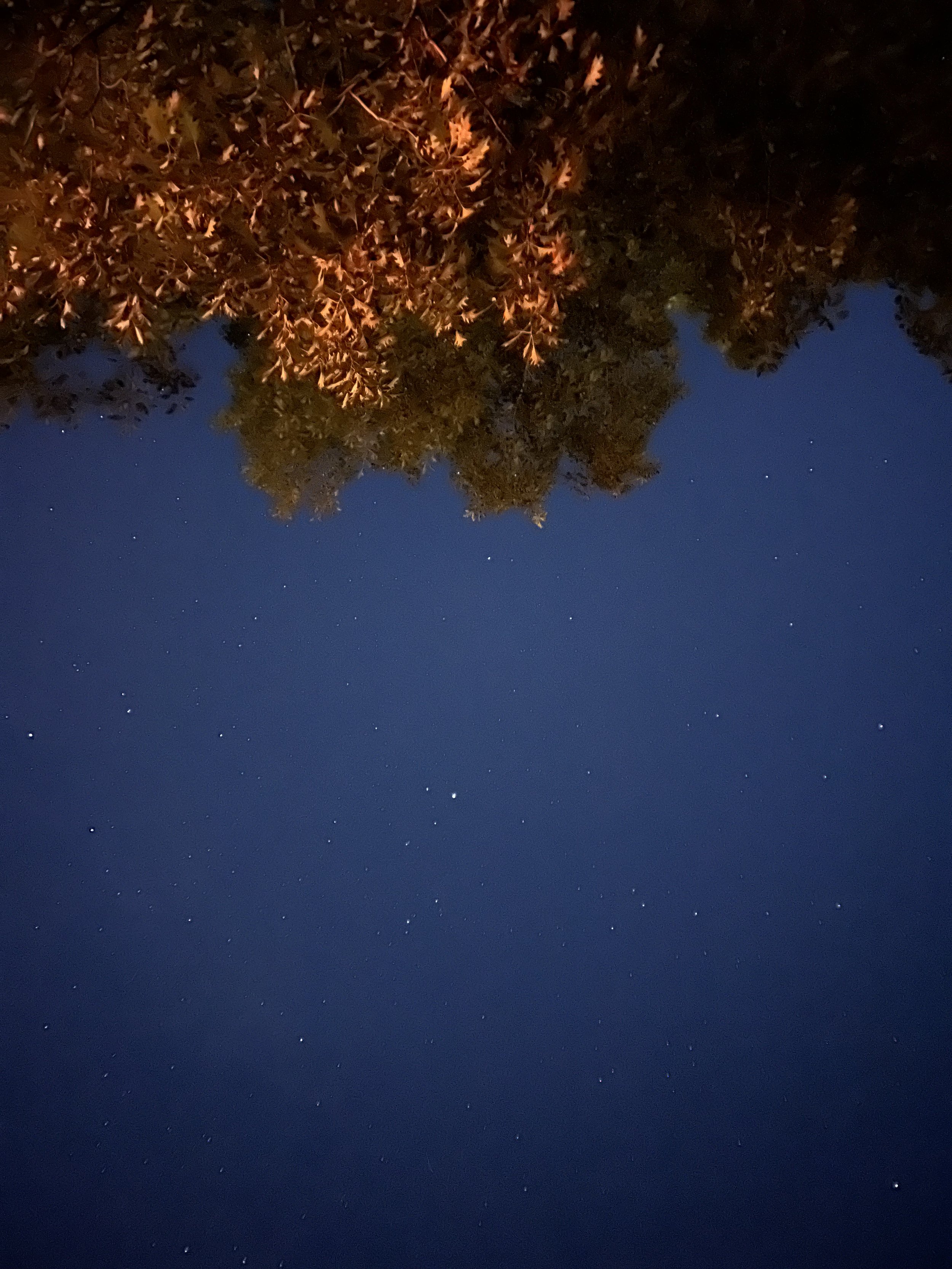It’s the Only Thing Keeping Us Alive— By Kristina Garvin
Artwork by Susan Cohen
Stephen Hawking held a party for time travelers from the future. He invited them after the party was over, after the hors d’oeuvres had gone off, sallow under pink lighting, the chocolate-covered strawberries melting aside champagne gone cloudy. He figured that if they were from the future, they’d have known to be there. His point: no one can go back. Time travel is possible, but only to the future—never to the past. The reason: the universe always moves from unity to entropy, from chaos to crisis, from crisis to despair. You cannot uncrack an egg. You cannot reassemble a shattered mug. You cannot unknow a secret. There are so many secrets I’d like to unknow. The unzipping of the Twin Towers. The sound the American made when beheaded in Iraq. The things he said in the video before he was beheaded—the names of his father, mother, brother, sister, his hometown of West Chester, Pennsylvania, near Philadelphia, where I now live. The way he spoke to us. How I would prefer to unknow that men don’t really love the women they can’t own, and to unknow what it felt like to be stalked by such a man to the point that I moved in with parents. And also, that I’m a woman who might prefer to be owned. To unknow my flattened, failed arc. To unknow my lack of ambition. To believe I still prefer people at their most vulnerable. To unknow what made me give up meat: what they do to baby chickens, how they cull the males, useless because they don’t lay eggs, and macerate them by tossing them onto a conveyer belt that ends in a shredder, much like the shredder I keep at home. To unsee the video I watched of a cow, cornered in a slaughterhouse, hide the color of a wet fawn. No blood or entrails in this clip, no emptying of her throat—just cow scrambling to escape the masked worker with electric prods. To unsee her in the chute, eyes pooling and vacant, searching for the world beyond the world. To unknow I couldn’t give it to her. To unsee how the world deserts us in wintertime, leaving us empty but eventually unsurprised by this abandonment.
To unknow Kate, who unknew everyone by the end of the day. I was seventeen, she was seventy-nine, and I worked in a retirement home. My job: look after the old people. Wheel them to dinner. Dispense medication. Switch the TV to Lawrence Welk. Kate had dementia and mistook an office for a bathroom, a cooler for a toilet. Agitated, easily: I want to go home. I have a house on North Broadway. Where’s my husband? He’s picking me up now. But easy to distract. My middle-aged coworker, Rita, ready with her Appalachian accent to tell a dirty joke. Kate, Kate. Say, “There once was a man from Nantucket.” We’d recite the verses, Kate would laugh, entertained anew each time. Once I was with Kate all day, guiding her from her apartment smelling of overripe bananas, and we told jokes, each limerick dirtier than the last. Alone with me in the lounge, Kate cried when I said I had to leave, to abandon her for the world of a seventeen-year-old girl, the world of plays and books and dance rehearsals, and she clutched my hand. I told her I would come back tomorrow, and I did, and she didn’t remember who I was. How wounding, how vindicating, to know I was unspecial.
Then one day Kate was gone, spirited away by family who placed her in a secure facility. They threatened to sue. She’d escaped one night, on Rita’s watch, pushing open the double doors. She wandered four hours in the fields behind the center until she fell, wet and shivering, breaking her arm in three places. She went in search of singularity. Rita was fired; I quit. I don’t know what happened to Kate that night—if she came face-to-face with a deer with eyes the color of winter, if she mistook the field for her old front yard, the two-lane highway for North Broadway, the shopping center’s viscera for stars. I don’t know if she searched for her husband, and found him. I know merely that we all travel back in time this way, in the end, and I wish I could unknow that it’s the only way we ever unknow.
Kristina Garvin is a researcher and writer in Philadelphia. Originally from Ohio, she earned a Ph.D. in early American literature from the Ohio State University and currently works in the public health sector. Her essays and stories have appeared in Sky Island Journal, Cultural Critique, Novel Slices, Windmill, 34th Parallel, PopMatters, and elsewhere.
